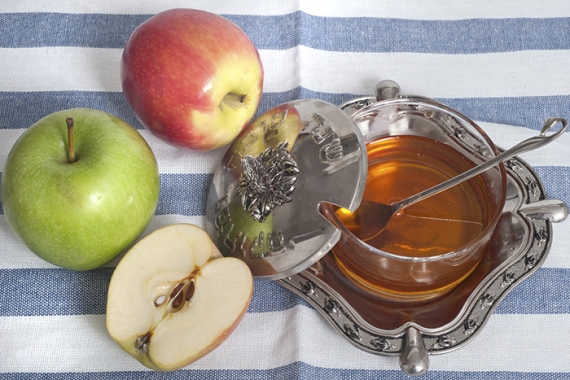On Rosh HaShanah, we can say “shanah tovah umtukah,” which means “may you have a good and sweet new year.” The greeting can be shortened to “” (“a good year”). A more formal expression is “L’shanah tovah tikateivu v’teichateimu”, which means “a good year, and may you be inscribed and sealed (for blessing in the Book of Life).” Another greeting is "tizku l'shanim rabot," which means "may you merit many years."
You may hear people say “,” but strictly speaking, chag sameach is used only on the three pilgrimage festivals: Passover, Shavuot, and Sukkot.
Another traditional greeting for Jews on both Rosh HaShanah and Yom Kippur is a greeting, “gut yontif,” which means “(wishing you) a good holiday.” Jews may offer a greeting in Ladino, "anyada bueno, dulse, i alegre," meaning "may you have a good, sweet, and happy new year." The Hebrew expression, "tizku leshanim rabot," meaning, "may you merit many years" is also appropriate.
Special greetings on Yom Kippur include “g’mar chatima tovah,” which means, “may you be inscribed (or sealed) for good [in the Book of Life],” and “tzom kal,” which is used to wish others an easy fast.
Whether you are greeting people in person, over the phone, online, or just signing an email, using a special phrase acknowledges the importance of the season and expresses your good wishes for the other person.
You can learn more about terms to use during the High Holidays in the ReformJudaism.org glossary.


